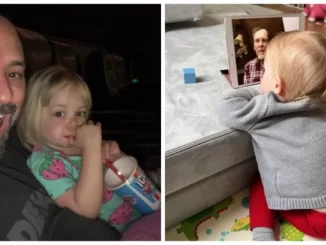Young people represent the future of our world, and their potential to enact profound change, particularly in the fields of science and medicine, is awe-inspiring.
14-year-old Heman Bekele has proven just that by achieving a remarkable feat and receiving a prestigious accolade for his invention of a cancer-treating soap.
14-year-old Heman Bekele has won “America’s Top Young Scientist” after inventing a soap that treats skin cancer

Image credits: Fairfax County Public Schools
As a ninth-grader from Annandale, Virginia, Heman entered the prestigious 3M Young Scientist Challenge while studying at Frost Middle School. He subsequently won America’s Top Young Scientist.
The annual challenge asks students starting fifth grade to submit a one to two-minute-long video for a chance to win $25,000 and an exclusive mentorship with a 3M scientist.
The soap bars contain salicylic acid, glycolic acid, and tretinoin meant to slowly reactivate dendritic cells

Image credits: Fairfax County Public Schools

Image credits: Fairfax County Public Schools
3M Company is an American multinational conglomerate operating in the fields of industry, worker safety, healthcare, and consumer goods.
It took Heman a mere eight months to conceptualize the soap and create a rudimentary prototype.
Now, his long-term goal is to eventually establish a non-profit organization to distribute the soap to those who require it.
Heman’s soap costs 50 cents per bar to make

Image credits: Fairfax County Public Schools

Heman’s melanoma-treating soap (or as Heman calls it, M.T.S.) encompasses a blend of salicylic acid, glycolic acid, and tretinoin.
In his submission video, Heman explained: “[They’re] all keratolytic agents that slowly reactivate dendritic cells.”
According to the National Institutes of Health, dendritic cells are professional antigen-presenting cells that inform the fight against invasive pathogens while enforcing tolerance to self and harmless environmental antigens.
Heman entered the prestigious 3M Young Scientist Challenge while studying at Frost Middle School

Image credits: 3M

Image credits: 3M
In other words, the cells boost immune responses.
After winning the $25k prize, Heman will be able to fund his research which will see his product cost 50 cents per bar to make.
Shripriya Kalbhavi, also a ninth-grader, from San Jose, California, won second place for developing a cost-effective patch that allows for self-automated medication delivery without pills or needles.
The ninth-grader won a $25,000 prize and an exclusive mentorship with a 3M scientist

Image credits: 3M

Image credits: 3M Young Scientist Challenge
Meanwhile, Sarah Wang, a seventh-grader from Andover, Massachusetts, came in third place for developing a glove that can detect certain epileptic seizures with common hand movements.
Heman told Fox News: “It’s so crazy, it’s so surreal to even think about it right now!
“The most difficult part was probably creating that first prototype.”
According to Young Scientist Lab, Heman hopes to one day become a successful electrical engineer “who has contributed significantly to the industry”.
It took Heman a mere eight months, to conceptualize the soap and create a rudimentary prototype

Image credits: 3M Young Scientist Challenge
He said: “I envision myself leading a team of professionals in the development of innovative electrical systems that will shape the future of technology.
“Alongside my professional success, I hope to have a fulfilling personal life with a loving family and a strong network of friends.
“I also hope to have given back to my community by mentoring aspiring engineers and supporting initiatives that promote STEM education.
Watch Heman’s competition submission below

Image credits: 3M Young Scientist Challenge
“Ultimately, in 15 years, I hope to have made a positive impact on the world through my work and personal endeavors.”
If Heman’s accomplishments persevere, the teen might as well revolutionize the oncological industry, as the average American must currently pay a hefty price for cancer treatment.
Heman’s long-term goal is to eventually establish a non-profit organization to distribute the soap to those who require it

Image credits: 3M Young Scientist Challenge
In fact, researchers found that the cancer-attributable annualized average medical costs were highest among those who died from cancer in the end-of-life phase, corresponding to $105,500 per patient, the American Association for Cancer Research reported.
Moreover, costs varied considerably by cancer site, with annualized cancer-attributable medical costs in this phase ranging from $71,300 for those with prostate cancer to $239,400 for patients with acute myeloid leukemia (AML).
The cancer-attributable annualized average medical costs in the initial, continuing, and non-cancer end-of-life phases were reportedly $41,800, $5,300, and $23,500 per patient, respectively.


